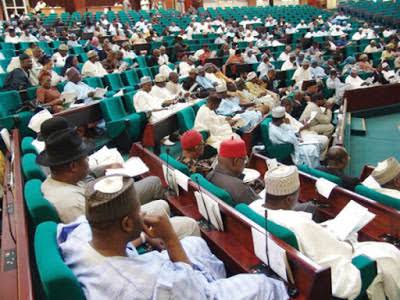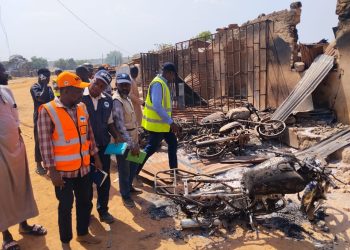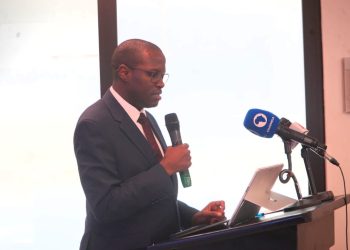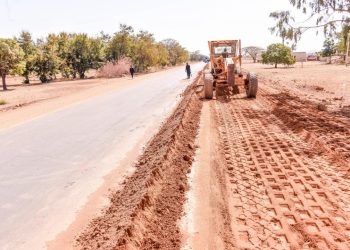By Nkechi Eze
The Speaker of the House of Representatives, Hon. Tajudeen Abbas, has disclosed that the Federal Government is advancing plans for the Diaspora Voting Bill, a legislative proposal aimed at granting Nigerians living abroad the constitutional right to participate in national elections.
Hon. Abbas made the announcement on Monday while declaring open the Nigerian Stakeholders Engagement on Diaspora Governance (NiSEDiG 2025) and launching the Nigerians in Diaspora Response (NiDRes) Application and Website. The event was organised by the House Committee on Diaspora in collaboration with the Nigerians in Diaspora Commission (NiDCOM).
Represented by Hon. Patrick Umoh, member representing Ikot Ekpene/Essien Udim/Obot Akara Federal Constituency, the Speaker described the development as a “major step towards extending democratic participation to all citizens and ensuring that every Nigerian voice is heard in the process of nation-building.”
He noted that the 10th House of Representatives considers diaspora engagement a national priority consistent with its legislative agenda on inclusion, accountability, and economic reforms.
In his remarks, Chairman of the House Committee on Diaspora, Hon. Tochukwu Chinedu Okere, explained that the NiSEDiG 2025 initiative was conceived to create a unified policy framework that integrates institutional mechanisms, legislative instruments, and digital technology to strengthen diaspora governance.
According to him, the newly launched Nigerians in Diaspora Response (NiDRes) App and Website are designed to simplify how Nigerians abroad access government services and communicate with Nigerian missions worldwide.
Delivering the keynote address, the Chairman/CEO of NiDCOM, Hon. Abike Dabiri-Erewa, highlighted the remarkable progress made in diaspora engagement since the Commission’s establishment six years ago.
“Over the past six years, the Nigeria–Diaspora relationship has made groundbreaking strides in health, education, agriculture, ICT, transportation, and volunteerism,” she said. “We have now entered a new phase of consolidating diaspora engagement to boost national development.”
Dabiri-Erewa recalled that the National Diaspora Policy, approved by the Federal Executive Council (FEC) on April 28, 2021, provides the strategic framework for facilitating diaspora participation in national development. She noted that the Diaspora Data Mapping Portal, launched in June 2021, continues to aid data collection and informed policy decisions.
The NiDCOM boss emphasized the economic importance of diaspora remittances, describing them as Nigeria’s largest source of foreign exchange. She disclosed that remittances amounted to US$23.81 billion in 2019, representing about 6% of the nation’s GDP.
She further listed several flagship initiatives spearheaded by NiDCOM, including the National Diaspora Day (July 25), which celebrates the contributions of Nigerians abroad to national development; the Nigeria Diaspora Investment Summit (NDIS), which connects diaspora investors with local opportunities; and the National Town Hall Meetings, where the President engages with Nigerians abroad during official trips.
Other initiatives include the National Diaspora Merit Award, which recognises outstanding Nigerians abroad; the Diaspora Quarterly Lecture Series focusing on critical issues affecting Nigerians overseas; and collaborative interventions with the Ministries of Foreign Affairs and Humanitarian Affairs to repatriate distressed citizens.
In an official statement signed by the Director of Media and Public Relations, Abdur-Rahman Balogun, Dabiri-Erewa identified key challenges confronting NiDCOM, such as limited funding, inadequate office accommodation, and the need to amend the NiDCOM Act to establish a sustainable funding mechanism from diaspora remittance charges.
The NiSEDiG 2025 initiative and the launch of the NiDRes App, according to her, symbolize Nigeria’s renewed commitment to building a stronger, structured, and inclusive diaspora engagement ecosystem.
The hybrid event brought together representatives from Nigerians in Diaspora Organizations (NIDO), academia, students and youth groups, the Nigerian Immigration Service, Ministries, Departments and Agencies (MDAs), and State Diaspora Focal Point officers.
















